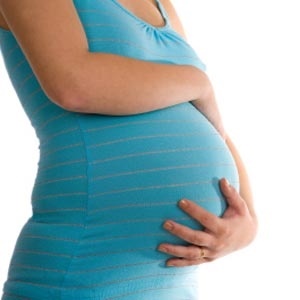
Pregnancy should be a time of joy for the mother-to-be – despite hormonal and physiological changes.
During the gestation period enormous changes take place in the mother’s body, which involve the mouth and teeth – often overlooked by mothers and doctors during pregnancy.
An old wives' tale propagates that “one tooth is lost for each pregnancy”. In this modern age nothing could be further from the truth, provided some basic knowledge is imparted to the mother regarding her changing physiology, and how to deal with these changes.
The main oral health issues associated with pregnancy are:
Hormonal changes
Pregnancy shifts usual hormonal levels into turmoil. This leads to a roller-coaster ride of varying emotions and quite often includes lethargy and self pity. It is important not to let good oral hygiene regimes slip during such bouts!
It is also well documented that the gums (gingivae) become inflamed at times of hormonal change. The terms puberty and pregnancy gingivitis are often heard but seldom understood. The inflammation causes swelling in the gums which makes cleaning the teeth ,and the very important junction between the teeth and gums, more difficult.
Gingivitis may occur more frequently during the second trimester of pregnancy. This is due to a rise in the oestrogen levels, which increase the blood flow to the body tissues. It is not unusual for the gums to bleed when inflamed. It is imperative to realise that the bleeding is a sign that extra care must be taken when cleaning, and not, as so many mothers-to-be think, that the brush is hurting the gums and that brushing should be discontinued.
Also breastfeeding mothers should continue to monitor their oral hygiene, as hormonal fluctuations occur during lactation.
Diet
No one can dispute the dietary demands put on mothers-to-be! However, the old adage that the mother is “eating for two” is not quite accurate as excessive intake of food may result in the onset of weight problems while still not providing the necessary nutrients for the development of the baby.
Similarly, what you eat affects the development of your baby’s teeth. Primary tooth development has already started by the third month of pregnancy, and permanent teeth begin to form several months before birth. Vitamin A helps to develop the tooth enamel and vitamin C is important in the formation of the inner tooth structure. Vitamin D aids in the absorption of calcium and phosphorus.
For optimum development of teeth (and bones) it is necessary that sufficient sources of calcium are available in the diet, and that the body has the ability to absorb the calcium into the bloodstream. Calcium supplements have been shown to be largely excreted unabsorbed in the faeces. Calcium seems to be better absorbed if it is available in the diet rather than in pill form. Good sources of calcium are dairy products and canned pilchards and sardines with the cooked bones included in the can mashed into the fish and eaten. It is not essential to drink gallons of milk or to eat tons of cheese and tinned fish. Three quarters of a glass of milk, preferably low fat, is adequate.
No matter how much calcium is taken in the diet, it is useless unless it is successfully absorbed into the body. In South Africa we are blessed with a sunny climate which assists in this process.
Mothers-to-be should expose legs and arms to sunlight, not in the blazing heat of midday, where sunburn and even possibly skin cancer could result, but before 11 a.m. and after 3 p.m.. Fifteen to 20 minutes is adequate for the action of sunlight on the skin to lead to the formation of vitamins, which allow the body to absorb calcium.
It is not unusual for mothers-to-be to develop bizarre eating habits. Nocturnal feasts of chocolate or pickled onions become irresistible usually in the early hours of the morning. It is essential that teeth are cleaned before dropping off to sleep again.
Oral hygiene and dental treatment during pregnancy
As mentioned earlier, brushing is essential during pregnancy, but flossing is also important and in certain cases where plaque retention is a problem, your dentist or hygienist will be able to recommend special cleaning aids, to assist you in removing the harmful plaque.
It is advisable to visit your dentist as soon as possible after confirming your pregnancy in order that a more comprehensive list of do’s and don’ts can be provided.
Ideally, a dentist would prefer not to carry out extensive treatment during pregnancy, but in situations where treatment is essential, the next best option is to treat during the second trimester when foetal development is completed and the mother is not yet having to contend with a large abdominal distention. Treatment during this period is very safe provided that all medicaments are “pregnancy” friendly. Do remind your dentists of your pregnancy! Radiographs during pregnancy are very safe these days but nonetheless lead protection should be used particularly over the baby in the first trimester.
Take guidance from your dentist regarding treatment during pregnancy - he has you and your baby’s best interests at heart and wishes to intervene as little as possible, especially during critical times during the pregnancy. Being pregnant should, however, never stop you from seeking the help of a dentist, as ignoring pain, inflammation and sepsis could do far more damage to the foetus than minimal invasion dentistry.
By following these tips you should enjoy your pregnancy, deliver a healthy baby who should develop sound teeth, while still ensuring that your own dental status does not deteriorate.
Source: South African Dental Association




 Publications
Publications
 Partners
Partners










